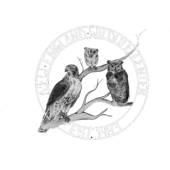When your pets get sick, you bring them to your veterinarian to be treated. Your pets fortunately have you to provide financial and medical support. When wildlife gets orphaned, sick or injured, whose responsibility is it to get it medical care and to pay for it?
All wildlife belongs to the State and Federal Departments of Fisheries and Wildlife. While they are responsible for it’s well -being, it is ultimately the wildlife veterinarians and rehabilitators that take on the cost of care. Right now, zero federal and state dollars go to wildlife hospitals like Cape Wildlife Center and since it is illegal to charge for the care of wildlife we heavily rely on donations and grants to help pay for all the expenses.
Cape Wildlife Center admits over 2400 patients per year for treatment and fields over 12,000 animal related phone calls. We have two wildlife rehabilitators who volunteer to be on call after hours to help with wildlife issues when the center is closed (the center is open 7 days /week 9-4).
Even though wildlife does not come in with their own credit cards that still doesn’t stop us from providing a high standard of veterinary care that includes diagnostics, medications, and surgery if needed. To put this in perspective, we conferred with a domestic pet veterinarian regarding what it would have cost to treat one of our recent patients if it had presented to a small animal clinic. Our patient was a mother opossum with 9 babies in her pouch that was hit by a car and suffered a broken jaw and lacerated tongue. Here is a breakdown of some costs for just this one patient.
Full radiographs under sedation to assess fractures- $310.00
Surgical repair of tongue and fractured jaw including anesthesia, pain meds, antibiotics and fluids- $3750.00
Esophageal tube placement with additional radiographs to check correct placement (to be able to provide nutrition until jaw was healed enough she could eat on her own) – $850
24-hour hospitalization for her and her babies including feeding, minimum $50/day for minimum 8 weeks. $3000
Antibiotics and pain meds: minimum $25-40 per drug per day. Approx.: $2000
Total for this one patient: $9,910
Mom and her babies will remain with us for at least 8 weeks while they are healing and growing. In addition to this family, we are also treating 100 other patients at the center who are receiving just as intensive care. The average rehab time for adult wildlife is typically 60 days, however, orphan mammals stay with us about 5 months, and turtles and bats can stay up to 7 months if they are overwintering. In the busy season the hospital can have 150 patients in house and admit 30 new patients per day. That is a lot of mouths to feed and a lot of animals to care for, but we do it because we are passionate about caring for wildlife.
We can provide the medical care but still need your support to help us cover the costs. After all, wildlife really belongs to everyone in Massachusetts and it would be wonderful if we could share the cost of care. To help provide a guaranteed stream of revenue, Cape Wildlife Center has developed an exciting new concept, The Cape Wildlife Center 100. It is a way for anyone who cares for wildlife to donate to help offset the costs of their medical treatment. Please go to our website: www.capewildlifecenter.com and click on the menu icon and got to Cape Wildlife Center 100 to learn more about this unique giving program . Or email Carynritchie@me.com.
Caryn Ritchie is the volunteer coordinator for the Cape Wildlife Center and holds both a Massachusetts wildlife rehabilitator’s license and a federal permit to rehabilitate migratory birds

Recent Comments